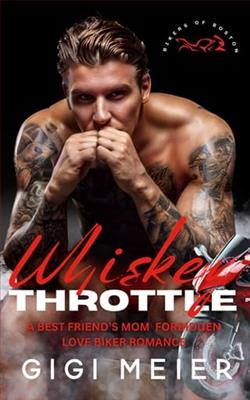Page 102 of Christmas at the Movies
‘At least schools are staying open this time,’ said Mum.
Holly groaned. ‘It’s so unfair. We have to do all the boring parts of school and none of the fun things.’ She had been looking forward to auditioning for the school musical, but the production had been cancelled. All clubs and sports had been cancelled too.
‘I liked it when the schools were shut.’ Nick snapped a wheel onto his latest LEGO creation.
Nick had found home-schooling less stressful than going to school. Holly’s little brother was annoyingly clever – he’d finish his primary school assignments quickly, then spend the rest of the day drawing, reading and building models.Nice for some.Holly had struggled to keep up with her schoolwork without proper lessons.
‘I know it’s difficult,’ said Dad. ‘But we’ll get through this lockdown, so long as we stay positive.’
‘Look, it’s Auntie Pari!’ exclaimed Nick, pointing at the television screen.
Holly’s godmother was standing outside a West End theatre with one of her clients, a handsome actor called Mateo Ajose. Underneath Pari’s picture, it said,Pari Johal, CEO of Shakti Talent. Once, Holly had asked her what the name meant, and she’d explained thatshaktimeant power in Punjabi.
‘You were due to star in a production ofA Midsummer Night’s Dream.’ The reporter addressed the actor. ‘How do you feel about the fact that the show can’t open as planned?’
‘Very disappointed, obviously,’ said Mateo. ‘But the most important thing is saving lives.’
‘Things are very tough for the entertainment community right now,’ added Pari. ‘It isn’t just the actors who are out of work – it’s the crew, the hair and make-up people, the musicians … They’re mostly self-employed, so they haven’t been furloughed. And even when they’re not operating, theatres have bills to pay.’
‘Cinemas too,’ muttered Mum.
The people who worked at the cinema got money from the government during lockdown. But because Holly’s parents owned the cinema, they didn’t get anything themselves. They’d had to take out loans, as they’d had no income for months. She’d heard them having whispered conversations about money through her bedroom wall.
‘The government has recently set up a rescue fund to help cultural organisations survive the pandemic,’ said the reporter on television. ‘But many theatres, museums and cinemas fear they won’t be able to survive another lockdown.’
‘Have we heard back from the Culture Recovery Fund yet?’ asked Dad.
‘Not yet,’ replied Mum. ‘It’s such a shame, because people could really do with a bit of escapism.’
Holly’s parents had applied for a grant so that they could host outdoor screenings while the cinema was shut. Holly hoped they got it, as drive-in movies sounded fun. She was desperate for somewhere to go – anywhere but home would do.
‘I had really hoped we could go ahead with the Twelve Films of Christmas, so we could spread some festive cheer,’ said Dad.
Something suddenly occurred to Holly. ‘We can still go to London and see Auntie Pari on my birthday weekend, right?’ Her thirteenth birthday was only a few weeks away. Last year, Pari had taken her to seeHamilton.
‘Only if the lockdown has been lifted by then,’ said Mum. ‘It wouldn’t count as “essential” travel.’
It’s essential for me,thought Holly.
‘But I can still have a birthday party, right?’ She had been planning an epic birthday sleepover party. They weregoing to eat pizza, give each other manicures and watchLittle Women, her favourite movie.
‘Not if we’re still in lockdown,’ said Dad.
‘But that’s so stupid,’ ranted Holly. ‘My friends and I all sit together in the same classroom at school. What does it matter if we get together outside of school?’
‘We’ve got to follow the rules,’ said Mum.
The rules didn’t make any sense. Wear a mask, don’t wear a mask … Avoid restaurants, support restaurants … Take a Covid test, there are no tests …
It was the same at home – her parents were always setting stupid rules. They were super strict about her phone and wouldn’t let her go on social media.
‘We’ve all got to do our bit to protect those who are more vulnerable, like Grandma,’ said Mum.
Geraldine had given a guest lecture at a university in Wuhan last November. She’d fallen ill as soon as she’d returned from her trip and had ended up in the hospital for several months on a ventilator, one of the UK’s first Covid cases – although they hadn’t known what it was at first. Since her illness, Holly’s grandma had suffered with breathing problems and fatigue. She was still working at Bristol Uni, but Holly knew her mum was worried about her getting the virus again now that her immune system was weakened.
‘Don’t get your hopes up, Hol,’ cautioned Dad. ‘The virus spreads faster in winter, so I wouldn’t be surprised if the restrictions get extended.’
‘But it’s my thirteenth birthday …’ Holly said in a small voice, tears prickling her eyes. She knew she shouldn’t be acting like a baby. Plenty of people had it far worse than her. Some kids at school had lost family members to Covid. Her parents’ friend, Roger, couldn’t attend Omar’s chemotherapy appointments with him.















